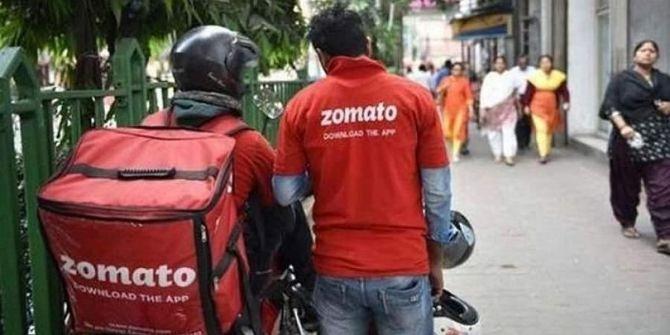The filing of Swiggy’s DRHP has led to direct comparisons with Zomato, which is a direct competitor in food delivery and the fast-growing quick-commerce segment where Blinkit (owned by Zomato) faces off against Instamart (and Zepto).

In Q-commerce, Flipkart, Amazon, Reliance and Big Basket are all entering the space.
All of them have deep pockets, hence competitive intensity will rise going forward.
E-com platforms are likely to offer discounts and wider assortments during the festive season.
Given more dark stores, wider assortment and improving penetration, festive season growth could see a big bump.
Non-grocery sales like that of smartphones and furniture happen in the early weeks of the festive season.
The second wave of buying happens at Dussehra, where Q-commerce will be big.
The third wave is around Diwali. The Q-commerce GMV (gross merchandise value) could be $1 billion equivalent with online sales aggregating $12 billion.
Surveys indicate consumers are prepared to spend much more than last year.
Zomato leads in food delivery and Q-commerce, but there’s an intense war for market share. Swiggy’s integrated app offering vs Zomato’s multi-app approach may be more market-friendly and Swiggy is also innovating with Bolt, a 10-minute food delivery platform.
Swiggy’s food delivery business has seen a 42 per cent year-on-year (Y-o-Y) expansion in the user base and 73 per cent growth in restaurant partners, while Zomato has 38 per cent and 53 per cent growth respectively in user base and restaurant partners on higher bases.
Zomato gained market share from Swiggy from financial year 2022 (FY22) through to Q1FY25. Reported gross order value (GOV) indicates Zomato’s market share grew from 54 per cent in FY22 to 58 per cent in Q1FY25.
The average Monthly Transacting Users (MTU) is higher for Zomato (20.3 million) vs Swiggy (14.03 million), but GOV per MTU, is 6 per cent higher for Swiggy, which indicates Swiggy’s customers are more mature and stickier.
Swiggy’s take rates are slightly ahead of Zomato’s, indicating better monetisation of the platform (possibly in ad sales from restaurant partners).
However, take rates may converge.
Zomato’s food delivery business shows consistent GOV growth and predictable profitability with an Ebitda margin of 3.4 per cent. Swiggy’s food delivery business has achieved breakeven, with lower Ebitda margin of 0.8 per cent.
Blinkit (formerly Grofers), which Zomato acquired, beats Instamart in Q-commerce.
Zepto and Blinkit are both gaining market share versus Instamart.
As of Q1FY25, Instamart operated a network of 557 active dark stores across 32 cities, whereas Blinkit has 639 active dark stores across 44 cities.
Blinkit has 81 per cent higher GOV (Rs 4,923 crore) than Instamart in Q1FY25.
Blinkit had a higher take rate of 19.1 per cent in Q1FY25 versus Instamart’s 14.8 per cent, and Blinkit also led with take rates in FY24 (18.5 per cent) versus Instamart (13.5 per cent).
Instamart’s Average Order Value is also lower than Blinkit, which also leads comfortably in profitability.
Blinkit’s Adjusted Ebitda margin was minus 0.1 per cent in Q1FY25 vs Instamart’s minus 11.7 per cent.
Swiggy’s new 10-minute food delivery offers brands like KFC, McDonalds, Burger King, Starbucks, etc.
Zomato tried a similar fast food delivery pilot in 2023 but could not scale.
Given the recent Q-commerce scaling up, the 10-minute food delivery space may soon be more crowded.
Zomato could sustain FY24-27 revenue CAGR of 55 per cent, and PAT margins could grow from 4.3 per cent (FY25 expected) to 8.7 per cent in FY26 and above double-digits in FY27.
Assuming 12.5 per cent cost of capital, DCF (discounted cash flow) calculation with these assumptions implies 20 per cent upside for Zomato.
However, assuming Swiggy’s IPO is successful, the capital could be deployed to present a stiffer challenge to the leader.
Disclaimer: This article is meant for information purposes only. This article and information do not constitute a distribution, an endorsement, an investment advice, an offer to buy or sell or the solicitation of an offer to buy or sell any securities/schemes or any other financial products/investment products mentioned in this article to influence the opinion or behaviour of the investors/recipients.
Any use of the information/any investment and investment related decisions of the investors/recipients are at their sole discretion and risk. Any advice herein is made on a general basis and does not take into account the specific investment objectives of the specific person or group of persons. Opinions expressed herein are subject to change without notice.












 © 2025
© 2025